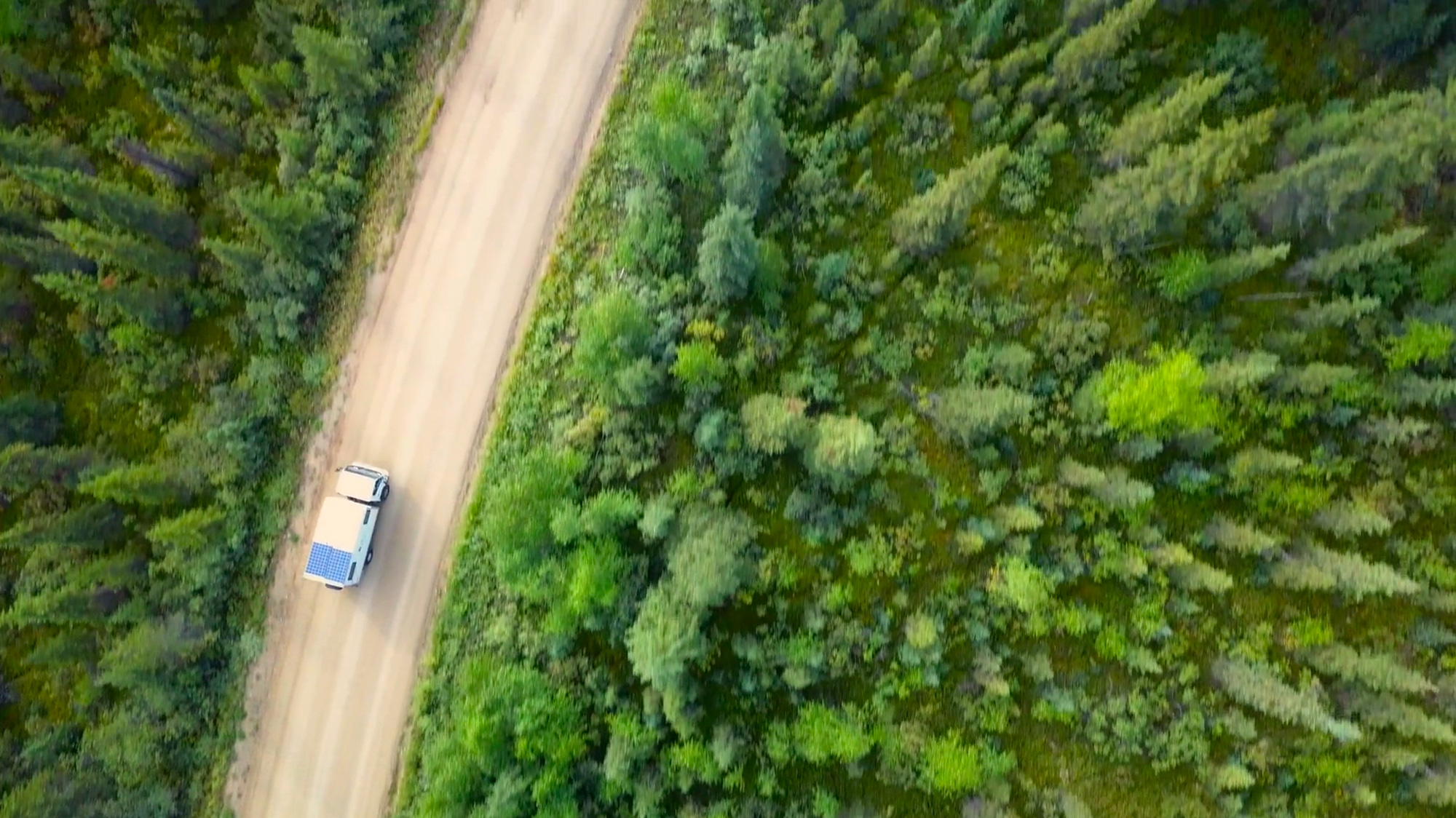PLANET

Sorry. We did not find anything.

FUSO, as a member of the globally active Daimler Truck Group, is clearly committed to the Paris Climate Agreement. We want to make sustainable transportation a success and thus contribute to climate and environmental protection.
We want to contribute to the transformation and decarbonization of our industry. We are pursuing a dual-track strategy with battery-electric and hydrogen-powered vehicles to decarbonize transportation.
The eCanter, launched in 2017 as Japan’s first mass-produced battery EV truck, is a vehicle that emits no CO2 or other exhaust gas while driving, and has low vibration and noise. As of 2024, the latest model of eCanter has been launched in seven markets. Alongside the vehicle, we collaborate with Mitsubishi Corporation and Mitsubishi Motors Corporation to operate EVNION, an online platform offering comprehensive services for electric vehicles. In 2024, FUSO also initiated a demonstration of EV truck battery swapping on public roads in partnership with Yamato Transport and Ample.
In addition, the New Super Great features advanced technology with high-performance, fuel-efficient engine. With a new design, including improved aerodynamics and the adoption of a super high roof, the truck achieves new fuel economy standards based on the JH25 mode.
We actively collaborate with our partners and stakeholders to accelerate the implementation of energy saving measures, renewable energy generation, as well as green energy certificates. We pursue an integrated approach to environmental protection with the help of effective environmental management systems and modern technologies. All electricity procured at both Kawasaki and Nakatsu plants are from renewable energy. In addition, Mitsubishi Fuso Bus Manufacturing Co., Ltd. also began operating on 100% renewable electricity in 2023.
In addition to the efforts to reduce carbon emissions in our production facility, the company is also implementing comprehensive environmental activities including development of green spaces that take into account local needs and biodiversity, enhancing the area’s appeal through the opening of these spaces to the community, and local cleaning activities. In recognition of our achievements and contribution to the local community, MFTBC was awarded with an Environmental Merit Award by Kawasaki City.
We ensure environmental commitments by anchoring sustainability standards in contractual terms with our direct suppliers. As part of these efforts, we require our production material suppliers to have a certified environmental management system in accordance with ISO14001 or comparable standards. To drive further progress, we implement the CDP supply chain program and engage in discussions with suppliers to create transparency about their decarbonization strategies and CO2-reduction targets.
While suppliers are encouraged to continuously improve their efforts to reduce CO2e emissions, we are also conducting supply chain CO2e baselining activities. These activities help us determine the proportion of materials in our products and identify the main drivers of Greenhouse Gas emissions in the upstream supply chain, particularly in the production of raw materials like steel, aluminum, and plastics. Looking ahead, material emissions will play a more significant role in new projects and contract award decisions.
In addition to internal activities to decarbonize the supply chain, we have also implemented topics to fulfill European regulations, such as supplier involvement into CBAM and EUDR.
* Carbon Border Adjustment Mechanism (CBAM)
* Regulation on Deforestation-free Products (EUDR)
AMBITIONS
We strive for our new trucks and buses to be CO2e free on the road globally by 2050, and in Europe, the US, and Japan by 2039.
We have achieved CO2e neutral production in Europe on the balance sheet. We want to realize this in Japan in 2025.
In addition, by 2030, we aim to reduce our Scope 1 and Scope 2 GHG (Greenhouse Gas) emissions by 42% compared to 2021.
We strive together with our direct suppliers for CO2e neutral products and services in Europe, the US, and Japan by 2039 – and globally by 2050.
FUSO is continuously working on reducing resource consumption and waste across all lifecycle stages of our products, while improving their usability.
In Japan, we promote recycling under the End-of-Life Vehicle Recycling Law. This includes recycling ASR, airbags, and chlorofluorocarbons. In 2024, the recycling rate for ASR and airbags were over 95%.
In our own operations, we reduce GHG emissions through renewable energy sourcing and energy efficiency measures – and we encourage our suppliers to do the same. With our “Green Production Initiative 2030” we aim to improve water efficiency and reduce waste at our production sites. The initiative also aims to reduce CO2e emissions and increase the use of renewable energy at our production sites.
FUSO also offers reman parts which are remanufactured to the same exacting specifications and engineering standards as our genuine part, FUSO Genuine Reman Parts consume less energy and valuable raw materials to produce, resulting in greater savings to our customers. Because FUSO Genuine Reman Parts are not manufactured from scratch, they also help reduce manufacturing emissions.
In addition, FUSO aims to build a pilot facility for recovering anode, cathode, and electrolyte materials from EV batteries with an aim to maximize value of battery materials, reducing total costs of EVs and environmental impact to make customers transition to EV easier.
AMBITIONS
We want to run our business following a circular economy. We want to enhance water efficiency and minimize waste generation across our global manufacturing network.